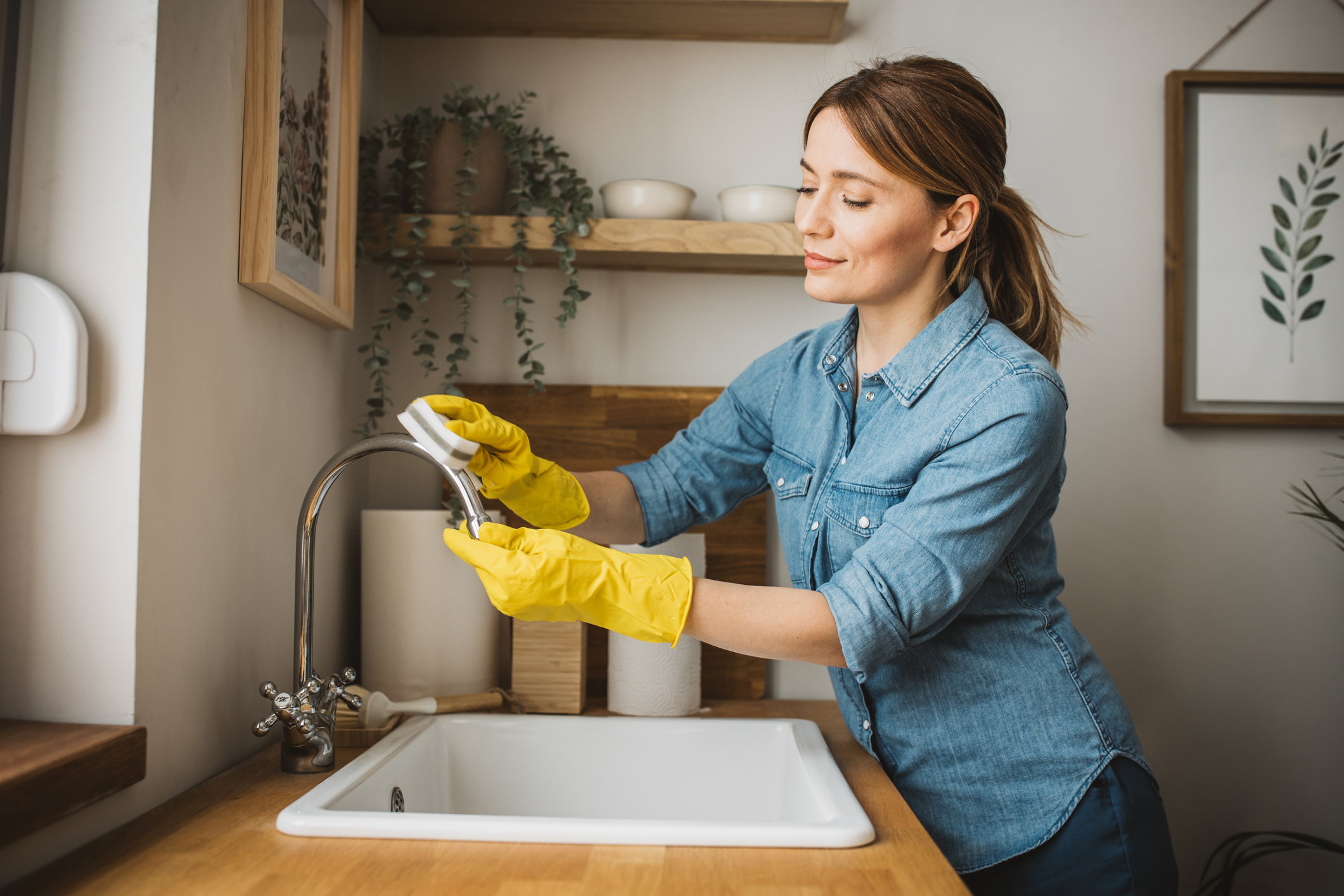Hard water stains are a common household nuisance, characterized by chalky, whitish deposits left by mineral-rich water, typically calcium and magnesium. These stains commonly occur on showers, faucets, sinks, toilets, and glass surfaces, presenting significant challenges to homeowners.
Understanding Hard Water Stains
Hard water stains occur when water containing high mineral content evaporates, leaving behind mineral deposits. Areas frequently exposed to water, such as bathroom fixtures and kitchen sinks, are most vulnerable. These stains are often tough to clean because minerals strongly bond to surfaces, creating stubborn deposits.
Supplies Needed to Remove Hard Water Stains
Gather the following essential cleaning supplies:
- White vinegar
- Baking soda
- Lemon juice
- Spray bottle
- Microfiber cloths
- Scrubbing brush or sponge
- Optional: Commercial descalers for tough stains
Step-by-Step Guide to Removing Hard Water Stains
Step 1: Vinegar Solution
Fill a spray bottle with equal parts white vinegar and water. Spray the solution generously onto the affected area and allow it to sit for 10-15 minutes. This gives the vinegar time to dissolve mineral deposits. Wipe clean with a microfiber cloth.
Step 2: Baking Soda Paste
Mix baking soda with a small amount of water to form a thick paste. Apply this paste to stubborn stains and gently scrub using a brush or sponge. Rinse thoroughly with water and wipe dry.
Step 3: Lemon Juice Treatment
Lemon juice, rich in citric acid, effectively breaks down mineral deposits. Apply fresh lemon juice directly to stains or rub cut lemon halves onto faucets and fixtures. Let sit for 10 minutes before rinsing and wiping clean.
Removing Hard Water Stains from Specific Surfaces
Glass Shower Doors and Mirrors
Spray vinegar solution onto glass surfaces. Allow it to soak, then scrub gently with baking soda paste. Rinse thoroughly and dry completely to prevent further buildup.
Toilets and Sinks
Pour vinegar directly into toilets and sinks, allowing it to soak overnight if possible. Scrub with a brush the next day, flush or rinse with water, and follow up with a baking soda scrub if needed.
Stainless Steel and Chrome Fixtures
Use lemon juice or vinegar solution sparingly. Rub gently, rinse thoroughly, and dry immediately to avoid corrosion or dullness.
Preventing Hard Water Stains
Preventing stains is simpler than removing them:
- Wipe down wet surfaces daily to remove mineral-rich water.
- Consider installing water-softening systems or filters to reduce mineral content.
- Regular cleaning reduces stain buildup, making it easier to manage.
When to Consider Professional Cleaning Services
If your DIY efforts consistently fall short or stains are particularly severe, hiring professional cleaning services like CMA Cleaning ensures thorough removal. Professionals use specialized tools and products to safely and effectively remove tough mineral deposits without damage.
Conclusion
Successfully removing hard water stains involves simple yet effective methods like vinegar, baking soda, and lemon juice treatments. Regular preventive cleaning significantly reduces stain formation, while professional services provide solutions for particularly stubborn or extensive buildup. Keep your surfaces sparkling clean by applying these practical tips and techniques today.







